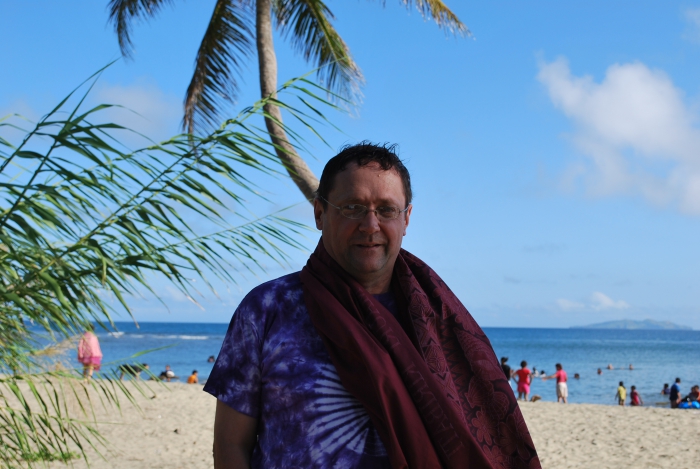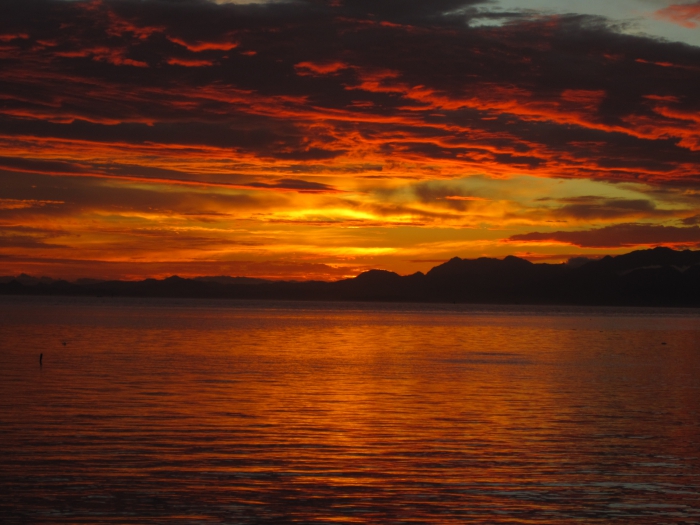Tony Horgan MSC
Age:
58
When were you at Princethorpe?
1967 to 1970 as a pupil and in the early 1980s for two years as a Chemistry teacher.
What are you doing now?
Working with the MSCs in Ireland, having just finished a three and a half year secondment as priest to a community in the South Pacific.
What was Princethorpe like in your day?
I feel privileged to have belonged to the first group of about 90 students (including about 20 boarders) that came from St. Bedes to Princethorpe in September 1966.
We had just finished an exciting summer of World Cup football and England were the champions and September was upon us, now boringly it was back to school. Not for us! going back to school had a special significance. We were moving from the confined residential suburbs of Leamington Spa (Binswood Ave) to the open undulating countryside of Princethorpe, where its imposing, beautiful Benedictine monastery was to become our new place of learning!
Fr. John Kevin Fleming MSC, BA H.Dip., our Headmaster, would tell parents of the boys and visitors to the school, "As far as the eye can see all the land and houses belong to us" and all this was to be newly named as ‘Princethorpe College’.
It was an impressive place with its many acreage, including farmland on the other side of the Leamington Road, as well as a significant number of cottages and houses along both the Leamington and Coventry Roads. As a kid I found the first year at Princethorpe College simply an exciting place to be. Everything was so new. Fr. Fleming would solemnly read out the list of rules (where we could and could not go) for the day at the morning school assembly, and as kids while we would seriously listen to what he had said, we would still go about the business of exploring this vast new building and its grounds.
We would often race against each other down the long corridors where the different statues became our spectators. The many times we ran up and down the 100 or so steps of the Princethorpe tower as a way of keeping ourselves fit and active. With only half of the building being used as classrooms for school purposes we also found ourselves exploring every corner and hidden area(particularly the cellars) wondering what treasures we might find. There were many attics in the roof to be explored. One in particular above the second floor nun’s bedroom quarters had a tank containing over 500 gallons of water. A few of us were up there at one time when a pipe broke causing the water to seep down through three storeys to the kitchen itself. Fr. Fleming our headmaster was not amused but he was compassionate and forgiving of us. We also discovered tunnels under the school buildings which needed to be explored as well. Along with that all the grounds and wooded area (around Switzerland) became our place of play. We also enjoyed walking and cycling to Princethorpe and other surrounding villages. We tried going to local pubs but were too young to get served.
Coming from the confines of inner city Birmingham the beauty and freedom of the open countryside of Princethorpe made a lasting lifetime impression upon me. During those early years with obvious limited resources we worked hard academically and did well with a high number of us getting places at university. On the sporting field the most serious competitive games were between the different houses, we didn’t play that many games against other schools yet. By the time I left Princethorpe College after doing A levels in June 1970 the number of students had doubled. The science labs (Biology, Physics and Chemistry) were well equipped and different Heads of Department were in place. With Fr. Bill Clarkson now as Headmaster, the school was becoming more established and building up its reputation in local area. On reflection I would describe my years at school in St. Bedes and Princethorpe as being a very happy time in my life.
What did you do after leaving Princethorpe?
After being ordained a priest in 1980 I did come back for two years to teach Chemistry but never found the same happiness there as during my student days. I then spent the next 25 years working as a MSC priest in Ireland and then in April 2008 I chose to go and work for three years in the Pacific. Once again the beauty of the area deeply touched me. The island beaches and sun which you see in films like ‘Castaway’ and the ‘Blue Lagoon” gives one as a tourist the feeling that you have found paradise. But I didn’t go there as a tourist but to live and work with the local people. To learn their language customs and culture and join them in living a simple lifestyle.
There are hundreds of different languages and cultures among the island people of the Pacific. I spent most of my time living on the main island of an archipelago of over 80 islands of the Republic of Fiji looking after a small, urban parish of about 300 families on the outskirts of the main town of Suva. Learning the language and culture of these island people meant a letting go of a modern Western mindset, values and lifestyle that we have taken for granted all our lives. The people of Fiji basically live within a clan/tribe system. Everything is centered on the local community or village. Each village having its own chief and set of elders (all are men) who have great power and authority in the eyes of the people.
As a priest I became a ‘white’ chief for the people of the parish which meant I had to follow certain protocols and customs of the people. I had to sit at a special place at all social functions, receive my garland, be the first to drink Kava from the ‘Tanoa’ and eat the food that was specially cooked for me. The people would sing and perform special dances (like the Maori Haka we see the All Blacks perform before the important international rugby matches) and I would show my appreciation by rubbing the faces and heads of each performer with baby powder!
How did Princethorpe prepare you for life?
I am not sure how my school days in Princethorpe prepared me for this. Yes we go to school to get educated but I must admit I got another great education about life from living with these people. Different in many ways we all maybe but after three years I learnt we share a lot in common through our shared Christian values and common humanity. These people live close to the earth and they trust that the land and sea will give them all the food they need. They are a poor but very spiritual people, with a great sense of community. Even though they have very little in terms of money or possessions they have the generosity to share what they have. This they did with me welcoming me into their homes and treating me as they would one of their chiefs. It is through such sharing of each other’s cultures and customs with one another that we can learn so much from each other and become enriched because of it.
I have now left these people and have come back to join the MSCs in Ireland again. I have experienced a part of the world that I never knew existed. I wonder how much it would enhance the education of the students of Princethorpe College if they learnt more about the customs and culture of the people in places like the Pacific, We never did in our day but now all things are possible.
Is there anyone from Princethorpe that you would like to track down?
I would like to get in contact with anyone from the A level class of June 1970 or the O level class (‘Upper Five’) of June 1967. I also would like to know where Liam Harvey is now.
 View Gallery
View Gallery

